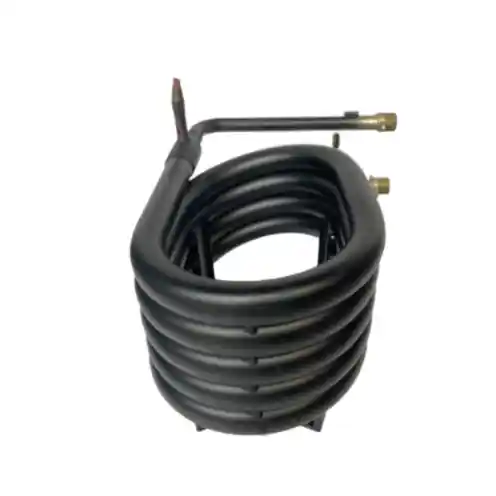Introduction
Carbon steel is a commonly used material in the construction of coaxial heat exchangers due to its excellent mechanical properties, cost-effectiveness, and wide availability. This article provides a comprehensive overview of the application of carbon steel in coaxial heat exchangers, including its advantages, manufacturing considerations, and comparison with other materials.
Table: Comparison of Carbon Steel with Other Materials
| Property | Carbon Steel | Acero inoxidable | Cobre | Aluminum |
|---|---|---|---|---|
| Corrosion Resistance | Moderate | High | Moderate | Low |
| Thermal Conductivity | Moderate | Moderate | High | High |
| Mechanical Strength | High | High | Moderate | Low |
| Cost | Low | High | Moderate | Low |
| Weight | High | High | Moderate | Low |
Advantages of Carbon Steel in Coaxial Heat Exchangers
- Mechanical Strength: Carbon steel possesses excellent mechanical strength, making it suitable for high-pressure applications and environments.
- Cost-Effectiveness: Carbon steel is relatively inexpensive compared to other materials, making it a cost-effective choice for heat exchanger manufacturing.
- Availability: Carbon steel is widely available and can be easily sourced from various suppliers.
- Compatibility: Carbon steel is compatible with a wide range of fluids and can withstand high temperatures and pressures.
- Durability: With proper maintenance and corrosion prevention measures, carbon steel can exhibit good durability in many operating conditions.
Manufacturing Considerations
- Corrosion Protection: Carbon steel requires proper corrosion protection measures to prevent corrosion and extend the service life of the heat exchanger. This can be achieved through coatings, paints, or surface treatments.
- Material Selection: Carbon steel is available in different grades and forms, and the selection should consider factors such as operating conditions, fluid compatibility, and cost.
- Welding and Fabrication: Carbon steel can be easily welded and fabricated using standard manufacturing techniques, allowing for efficient production and customization of coaxial heat exchangers.
Conclusion
Carbon steel offers several advantages for coaxial heat exchanger applications, including excellent mechanical strength, cost-effectiveness, and wide availability. However, its moderate corrosion resistance necessitates proper corrosion protection measures. By considering the specific requirements of the heat exchanger system and implementing appropriate manufacturing and maintenance practices, carbon steel can provide reliable performance and longevity in various industrial and commercial applications.


